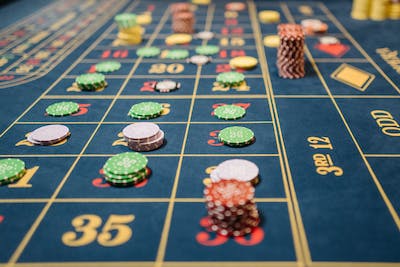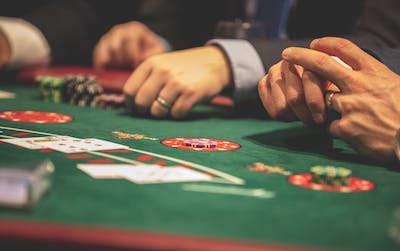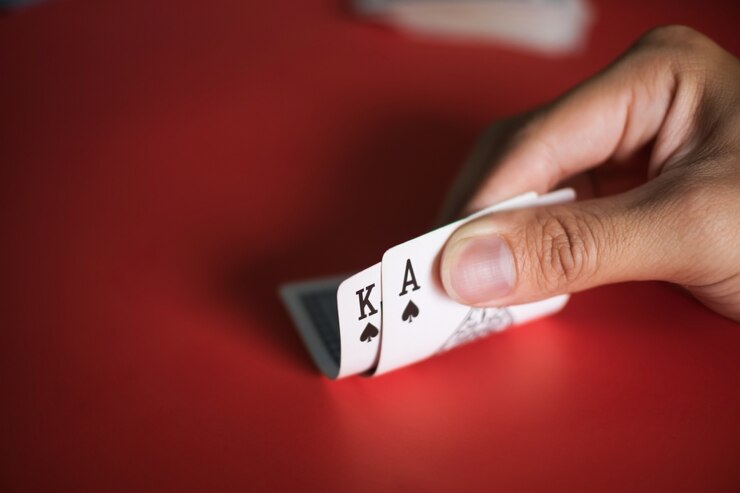When playing blackjack, one of the most important decisions you can make is when to double down. Doubling down means you double your original bet and receive only one more card from the dealer.
If done correctly, this strategy can give you a big payout, but it’s also risky because it puts twice as much money on the table. Knowing when to double down when playing blackjack is essential for any player, so here are some tips to help you make the right decision.

How do you Double Down in Blackjack?
Executing this move correctly can be the difference between a successful outcome and a costly mistake. The first step to a successful double down is to ensure that your hand qualifies for this move – typically, this means that your initial two cards have a combined value of 9, 10, or 11.
Once you’ve confirmed that your hand qualifies, the next step is to double your original bet and receive one more card. It’s essential to clearly understand the rules and strategies involved in a double-down, as it can be risky if not executed correctly.
Mastering the double down in a blackjack game can become valuable if you know when to use it.
When to Double Down
When Your Cards Total 11
Like any poker game, players use various strategies to improve their blackjack strategy. One such method is doubling down, which involves placing an additional bet equal to your original bet and receiving one additional card.
When your cards total 11, doubling down can be a wise choice. It gives you a strong hand with the potential to make a total of 21, the highest possible score in the game. However, it is essential to remember that doubling down also involves taking a risk, as you are increasing your bet size and potentially losing more money.
As with any gambling strategy, weighing the risks and rewards before deciding whether to double down is essential.
When You Have a Hard 9 or 10
It’s important to know when to deploy doubling down in blackjack, and having a hard 9 or 10 is a good indicator that it’s time. Doubling down essentially means doubling your bet, but it’s only recommended when your chances of winning are high.
A hard 9 or 10 means your hand contains no ace or an ace that can only count as one, so you don’t have to worry about busting by adding another card. By doubling down on these hands, you are putting more money on the line, but statistically speaking, you will come out ahead in the long run.
Remember that this strategy is not foolproof, but it’s good to have in your back pocket when the cards fall in your favor.

When You Have a Soft 16, 17 or 18
Knowing when to double down can make all the difference in helping you win big. If you have a soft 16, 17, or 18, it’s time to double down. It means you can double your initial bet in exchange for being dealt one more card. It might seem risky, but it can be an intelligent move that improves your chances of doing better in the right circumstances.
By doubling down, you’re telling the dealer you have a strong hand and are ready to take on whatever they throw at you. So next time you play blackjack, remember this strategy and watch your winnings pile up.
When Not to Double Down
The decision to double down can make or break your game. Many players often focus on knowing when to double down, but knowing when not to is equally crucial. Doubling down involves doubling your initial bet in exchange for only one more card.
Not letting greed and excitement get the best of you is essential. Considering the dealer’s up card, your hand value, and the risks involved is necessary before deciding to double down.
When the Dealer is showing an Ace
When you play blackjack, the aim is to get a higher total than the dealer without going over 21. There are certain situations when it is wise to double down, but when the dealer shows an ace, it is not one of those times.
Why? The dealer’s chances of hitting 21 increase when they hold an ace, which means you’re more likely to bust if you risk doubling down. It’s important to remember the odds and probabilities when playing blackjack and to make decisions based on them rather than emotions or impulses.
If you’re dealt a hand, and the dealer has an ace, hold off on doubling down and carefully consider your next move instead.

When You Have a Hard Total of More Than 11
While doubling down can increase your potential winnings in certain situations, it is not always the best move. One such condition is if you have a hard total of more than 11.
A hard total means you do not have an ace in your hand, or the ace is counted as one. Doubling down on a hard hand with more than 11 can put you at risk of busting and losing your entire bet. It is essential to consider all the factors before making any moves at the blackjack table and only sometimes follow strict rules.
Conclusion
Gambling is risky, but knowing when to double down in blackjack can give you an edge and improve your chances of winning. It’s essential to weigh the risks and rewards before deciding whether or not to double down, as well as always consider the dealer’s up card and your hand value.
Knowing when not to double down is just as important, so keep an eye out for the dealer’s ace and when you have a hard total of more than 11. With these tips in mind, double down your way to victory.